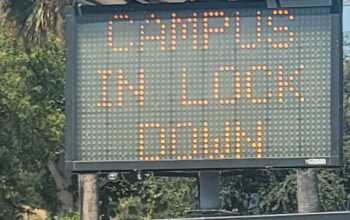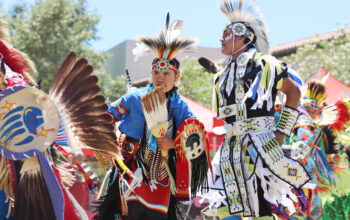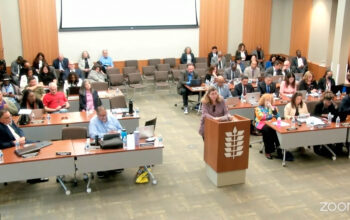New faculty hirings, upcoming events on campus and language amendments were among a variety of topics discussed and presented in the first Academic Senate meeting on Monday.
After calling the Sept. 11 meeting to order but before roll call, Academic Senate President Margarita Pillado read aloud a distillation of the 9/11 terrorist attacks and asked for all to observe a minute of silence.
Following the opening items of the meeting, Pierce College Interim President Ara Aguiar was the first to speak, and she provided updates on the COVID-19 status in the community, the addition of class sections in the fall semester, managing bots in classes and faculty hiring.
Interim President Aguiar also announced two scheduled workshops.
“We do have on Sept. 21 an active shooter workshop,” said Aguiar. “Then we are going to have what they are calling now a situational de-escalation prevention workshop, which means you kind of manage the classroom with issues that escalate to the point where you’d like to ask support there, how to go about it as faculty members, if you’re in the classroom or on Canvas.”
Pierce College Council Chair Brian Gendron briefly spoke about a new standing committee—the Sustainability Committee—that has been initiating the development of a sustainability master plan for Pierce College, and mentioned a framework, STARS (Sustainability Tracking, Assessment & Rating System), they are utilizing.
“We want to know what we are already doing to meet the criteria for these sustainability efforts,” said Gendron. “And then, probably more importantly, what can we do or maybe what should we do?”
“For example, one of the areas relates to academic courses,” added Gendron. “And so, we’re trying to determine—do we have courses that are grounded in the concepts of sustainability? Do we have courses that help build knowledge about sustainability or introduce students to sustainability concepts?”
After, Career Center Director Judy Lam announced an upcoming Oct. 4 major fair, and Transfer Center Director Sunday Salter presented on transfer programs, dates and deadlines.
As the second Action Item in this meeting’s agenda, a sentence in the Brown Act Modality for Senate Meetings was amended after much discussion. The following sentence, “The Senate and its standing committees will conduct its meetings in person and will provide a teleconference accommodation for remote public commentary, college reports, and other informational items and for observation of the proceedings” was amended to “…and may provide teleconference accommodation…”
After a vote that allowed for an amendment of the original language—and before the language was changed to “may” without objections—Jeff Favre motioned for the words “will provide a teleconference accommodation” to be amended to “encouraged to provide a teleconference accommodation” but the motion did not pass.
Dale Fields, who voted in favor of Favre’s motion, commented on the modes of accessibility of the Academic Senate meetings to the community.
“I think it is important to allow the public to get in there in the most effective ways possible for them, and I think that I come to this as primarily a teacher, where we are trying to offer as much openness to our students if we possibly can,” said Fields.
“And so therefore, I look on this in the same way—that we should offer the greatest opportunity to our community members, and to other members not of our department, of our meeting, to join us to see what’s going on,” Fields added, though they also recognized that running meetings with an OWL (online web learning) camera can be an additional burden.
Towards the end of the meeting, Senator Thomas Klein presented on the legislative process in California and how it can affect academia.



